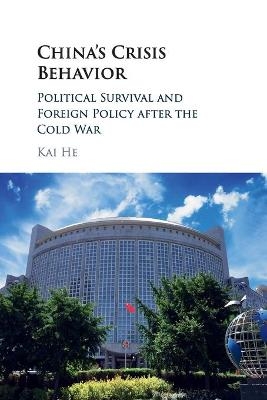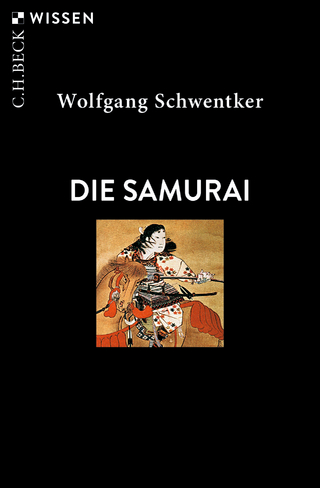
China's Crisis Behavior
Cambridge University Press (Verlag)
978-1-316-50678-3 (ISBN)
Since the end of the Cold War, China has experienced several notable interstate crises: the 1999 'embassy bombing' incident, the 2001 EP-3 mid-air collision with a United States aircraft, and the Diaoyu/Senkaku dispute with Japan. China's response to each incident, however, has varied considerably. Drawing from a wealth of primary sources and interviews, this book offers a systematic analysis of China's crisis behavior in order to identify the factors which determine when Chinese leaders decide to escalate or scale down their response to crises. Inspired by prospect theory - a Nobel Prize-winning behavioral psychology theory - Kai He proposes a 'political survival prospect' model as a means to understand the disparities in China's behavior. He argues that China's response depends on a combination of three factors that shape leaders' views on the prospects for their 'political survival status', including the severity of the crisis, leaders' domestic authority, and international pressure.
Kai He is Associate Professor of International Relations at Griffith University, Australia. From 2009 to 2010, he was a postdoctoral fellow in the Princeton-Harvard 'China and the World Program' (CWP). He is the author of Institutional Balancing in the Asia Pacific: Economic Interdependence and China's Rise (2009) and the co-author of Prospect Theory and Foreign Policy Analysis in the Asia Pacific: Rational Leaders and Risky Behavior (2013). His research has been supported by grants and fellowships from the John D. and Catherine T. MacArthur Foundation, the Lynde and Harry Bradley Foundation, the East-West Center in Washington DC, and the East Asia Institute in Seoul.
1. China's foreign policy crises after the Cold War; 2. Political survival and China's crisis behavior; 3. The Yinhe incident and the Taiwan Strait crisis; 4. The embassy bombing incident and the EP-3 mid-air collision; 5. The Impeccable incident and the boat collision crisis; 6. The Scarborough shoal dispute and Diaoyu/Senkaku purchase crisis; 7. Leadership transition and China's future crisis behavior; Conclusion.
| Zusatzinfo | 3 Tables, black and white; 3 Line drawings, black and white |
|---|---|
| Verlagsort | Cambridge |
| Sprache | englisch |
| Maße | 153 x 230 mm |
| Gewicht | 290 g |
| Themenwelt | Geisteswissenschaften ► Geschichte ► Regional- / Ländergeschichte |
| Geschichte ► Teilgebiete der Geschichte ► Militärgeschichte | |
| Sozialwissenschaften ► Politik / Verwaltung ► Europäische / Internationale Politik | |
| Sozialwissenschaften ► Politik / Verwaltung ► Politische Theorie | |
| Sozialwissenschaften ► Politik / Verwaltung ► Staat / Verwaltung | |
| ISBN-10 | 1-316-50678-9 / 1316506789 |
| ISBN-13 | 978-1-316-50678-3 / 9781316506783 |
| Zustand | Neuware |
| Haben Sie eine Frage zum Produkt? |
aus dem Bereich


